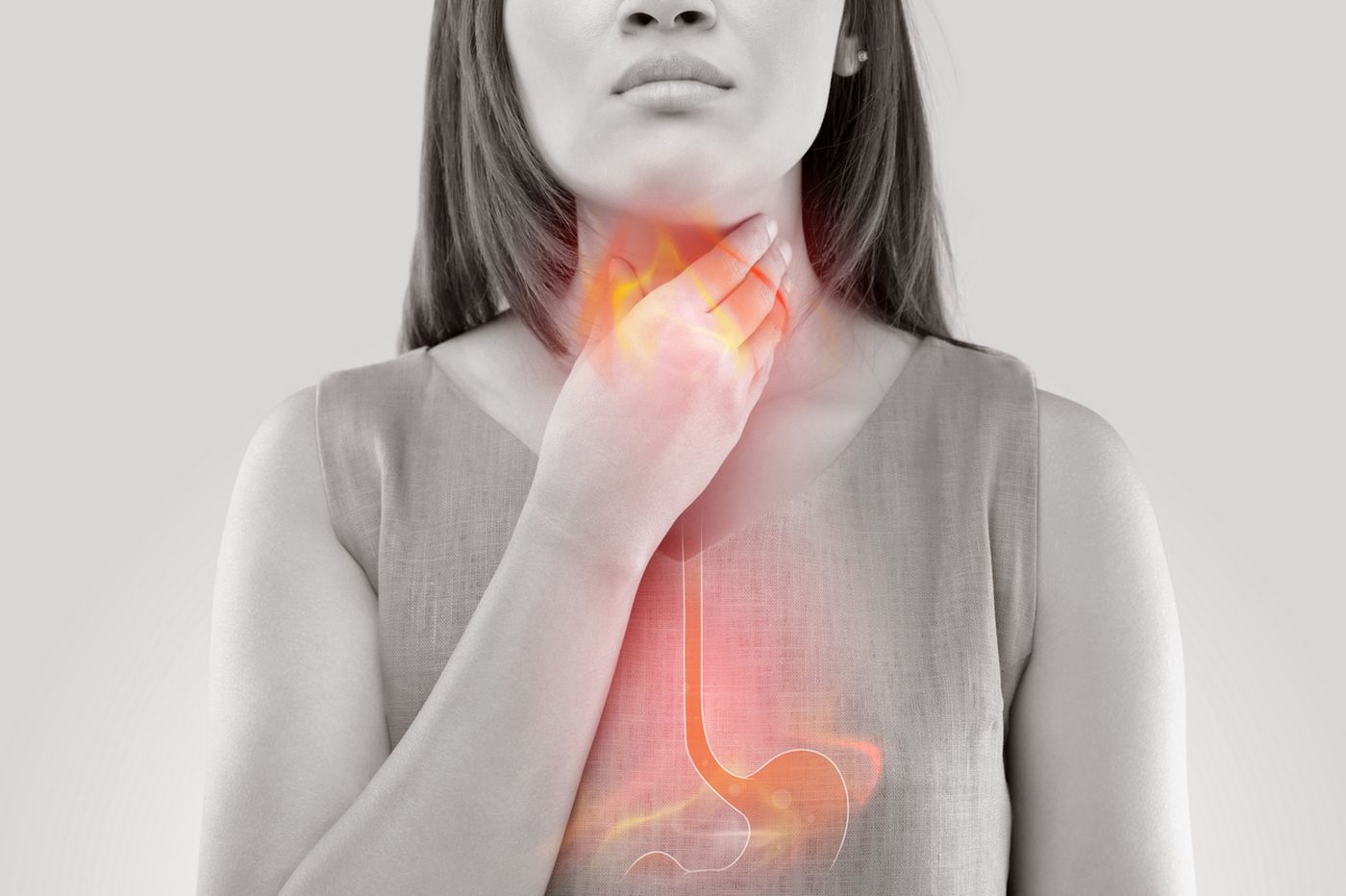Acid Reflux (GERD)
Overview | Possible Causes | Care and Treatment | HOME REMEDies | When to Call the Doctor | References

Overview
Gastroesophageal reflux disease (GERD) occurs when stomach acid frequently flows back into the tube connecting your mouth and stomach (esophagus). This backwash (acid reflux) can irritate the lining of your esophagus.
Many people experience acid reflux from time to time. GERD is mild acid reflux that occurs at least twice a week, or moderate to severe acid reflux that occurs at least once a week.
Most people can manage the discomfort of GERD with lifestyle changes and over-the-counter medications. But some people with GERD may need stronger medications or surgery to ease symptoms.
Possible Causes
GERD is caused by frequent acid reflux.
When you swallow, a circular band of muscle around the bottom of your esophagus (lower esophageal sphincter) relaxes to allow food and liquid to flow into your stomach. Then the sphincter closes again.
If the sphincter relaxes abnormally or weakens, stomach acid can flow back up into your esophagus. This constant backwash of acid irritates the lining of your esophagus, often causing it to become inflamed.
Care & Treatment
To prevent and relieve symptoms of GERD, your doctor might encourage you to make changes to your eating habits or other behaviors.
They might also suggest taking over-the-counter medications, like:
- Antacids
- H2 receptor blockers
- Proton Pump Inhibitors (PPIs)
In some cases, they might prescribe stronger H2 receptor blockers or PPIs. If GERD is severe and not responding to other treatments, surgery might be recommended.
Some over-the-counter and prescription medications can cause side effects.
Surgery for GERD
In most cases, lifestyle changes and medications are enough to prevent and relieve symptoms of GERD. But sometimes, surgery is needed.
For example, your doctor might recommend surgery if lifestyle changes and medications alone haven’t stopped your symptoms. They might also suggest surgery if you’ve developed complications of GERD.
Click here to read about the procedure to treat GERD.
Home Remedies
Lifestyle changes may help reduce the frequency of acid reflux. Try to:
- Maintain a healthy weight. Excess pounds put pressure on your abdomen, pushing up your stomach and causing acid to reflux into your esophagus.
- Stop smoking. Smoking decreases the lower esophageal sphincter's ability to function properly.
- Elevate the head of your bed. If you regularly experience heartburn while trying to sleep, place wood or cement blocks under the feet of your bed so that the head end is raised by 6 to 9 inches. If you can't elevate your bed, you can insert a wedge between your mattress and box spring to elevate your body from the waist up. Raising your head with additional pillows isn't effective.
- Don't lie down after a meal. Wait at least three hours after eating before lying down or going to bed.
- Eat food slowly and chew thoroughly. Put down your fork after every bite and pick it up again once you have chewed and swallowed that bite.
- Avoid foods and drinks that trigger reflux. Common triggers include fatty or fried foods, tomato sauce, alcohol, chocolate, mint, garlic, onion, and caffeine.
- Avoid tight-fitting clothing. Clothes that fit tightly around your waist put pressure on your abdomen and the lower esophageal sphincter.
When to Call the Doctor
Seek immediate medical care if you have chest pain, especially if you also have shortness of breath, or jaw or arm pain. These may be signs and symptoms of a heart attack.
Make an appointment with your doctor if you:
- Experience severe or frequent GERD symptoms
- Take over-the-counter medications for heartburn more than twice a week
To book online consultation to meet our expert doctor click on the link below
Reference
- https://www.mayoclinic.org/diseases-conditions/gerd/
- https://my.clevelandclinic.org/health/diseases/17019-gerd-or-acid-reflux-or-heartburn-overview
- https://www.niddk.nih.gov/health-information/digestive-diseases/acid-reflux-ger-gerd-adults






































































































